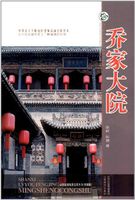The influence of historical speculation on politics is yet more definite and direct: even the most devoted disciples of particular creeds, the most ardent advocates of reform or reaction dare not simply take up the high standing ground of abstract theory from which all political questions were discussed less than a hundred years ago: the socialist as well as the partisan of aristocracy is called on to make good his contention by historical arguments.
It may be urged that the new turn thus taken is not altogether beneficial for practical life. Men of fanatical conviction were more likely to act and die for the eternal truth revealed to them, than people reflecting on the relative character of human arrangements. But can one get blissfully one-sided by merely wishing to be so? And is it not nobler to seek knowledge in the hope that it will right itself in the end, than to reject it for the sake of being comfortable? However this may be, the facts can hardly be denied: the aspiration of our age is intensely historical; we are doing more for the relative, than for the absolute, more for the study of evolution than for the elucidation of principles which do not vary.
It will not be my object to give a sketch of the gradual rise of historical study in the present century: such an undertaking must be left to later students, who will command a broader view of the subject and look at it with less passion and prejudice than we do now. But Lord Acton's excellent article has shown that the task is not quite hopeless even now, and I must try, before starting on my arduous inquiry into the social history of the middle ages in England, to point out what I make of the work achieved in this direction, and what object I have in view myself. Quite apart from any questions of detail which may come under consideration as the treatment of the subject requires it, I have to say in what perspective the chief schools of historians present themselves to my view, in what relation they stand to each other, to show how far they have pushed the inquiry, and what problems still remain unsolved. Such a preliminary sketch must not be carried out with a view to criticism and polemics, but rather as the general estimate of a literary movement in its various phases.
It is a remarkable fact, that the vast importance of the social side of history has been recognised later than any other aspect of that study. Stating things very broadly, one may say that it was pushed to the fore about the middle of our century by the interests and forces at play in actual life: before 1848 the political tendency predominates; after 1848 the tide turns in favour of the social tendency. I mean that in the first half of the century men were chiefly engaged in reorganising the State, in trying to strike a balance between the influence of government and the liberties of the people. The second half of the century is engrossed by the conflict between classes, by questions of economical organisation, by reforms of civil order. Historical literature, growing as it was in the atmosphere of actual life, had to start from its interests, to put and solve its problems in accordance with them. But it is no wonder that the preceding period had already touched upon a number of questions that were fated to attract most attention in later research. The rise of the Constitution, for instance, could not be treated without some regard being paid to the relative position of classes; it would have been out of the question to speak of political feudalism without taking into account the social bearing of the system. And so a sketch of the literary treatment of social questions must begin with books which did not aim directly at a description of social history.
I shall not detain the reader over the work achieved in the seventeenth and eighteenth centuries. The learning of a Selden or of a Madox is astounding, and a student of the present day has to consult them constantly on particular questions; but they never had in mind to embrace the history of their country as a whole.















